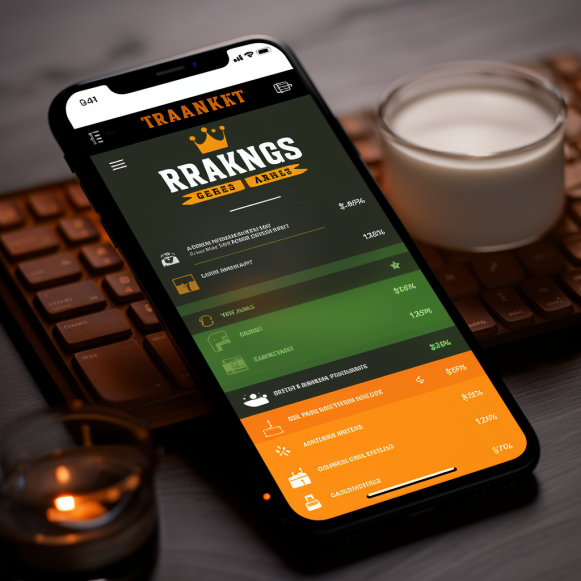Fanatics and ESPN are ready to shake up sports betting this fall. Here are the 5 battlegrounds to watch during the biggest gambling season of the year.

- The start of the regular NFL season kicks off the biggest sports-betting season of the year.
- Bank of America forecasts the market for US online sports betting will reach $9.5 billion this year.
- Here are the battlegrounds to watch as Fanatics and ESPN Bet enter and Bet365 gains share.
The NFL season began Thursday night, as did the most important season of the year for US sports betting.
The sports-betting landscape will look a little different this NFL season, according to those who are paying attention.
According to a September 5 Bank of America research note, the market for online sports betting is expected to grow 42% this year to $9.5 billion. Some of that growth could be driven by newcomers.
With its newly launched sportsbook and operator PointsBet on its side, Fanatics is ready to make a splash. In addition, Penn Entertainment is abandoning its Barstool Sportsbook in favor of ESPN Bet, which is set to launch this fall.
“We’ve always said that there are probably going to be five or six main sports-betting companies, and nobody has really moved up to be the dominant number three player on the podium,” Macquarie gambling analyst Chad Beynon told Insider. “Everyone is vying for the third and fourth spots.”
The increased competition may force operators to spend more money on marketing after cutting back last year.
“The question for the fall is whether Penn’s launch of ESPN Bet (and Fanatics’ launch, too) will destabilize what was a rationalizing competitive landscape,” Bank of America analysts wrote.
Several smaller sportsbooks, most recently Fox Bet, have already withdrawn because it is too expensive to compete. And some casino companies are putting their sports betting apps on hold until the momentum in online gambling legislation in the United States picks up.
Meanwhile, market-share leaders continue to distance themselves from mid-tier competitors, with FanDuel and DraftKings dominating gross gaming revenue. According to Eilers and Krejcik Gaming, the following are the standings for the 12 months ending in June:
- FanDuel has a 45% market share.
- DraftKings (28%).
- 11% for BetMGM
- Caesars: 7.7 percent
Based on Insider’s reporting and conversations with experts, here are the five most important battlegrounds to watch in US sports betting:
1. One of the UK’s largest gambling companies is quietly expanding in the United States.
Bet365, dubbed “the sleeping giant” in US sports betting by many industry insiders, is finally waking up.
The company’s online sports betting app, which is currently available in a few US states with more on the way, has seen significant app-install growth in the US this year.
As one of the largest online gambling operators in the UK and one of the largest in the world, one industry insider dubbed Bet365 “the 800-pound gorilla” in the space earlier this year — but warned that the longer the company waits to build customer mind share in the US, the more difficult it will be to compete with market leaders like FanDuel and DraftKings.
Bet365’s recent strategy has been to invest in new markets where it can be the first to launch sports betting, such as Ohio, which launched sports betting earlier this year.
“Marketing spending and product quality are driving Bet365’s momentum in the US market,” said Chris Krafcik, managing director of sports betting and emerging verticals at Eilers and Krejcik Gaming.
Krafick stated in July that Bet365 had spent approximately $51 million in Ohio on player “generosities” such as free bets and deposit bonuses, representing approximately 11% of its total spending on such generosities thus far. In states where Bet365 was not the first to market, such as Colorado and Virginia, EKG estimated that the company’s marketing budget was “much more conservative.”
According to EKG, Bet365’s platform stands out for its in-play betting functionality and robust set of features. It finished fourth out of more than 40 apps tested by EKG’s national panel of “secret shopper” app testers, trailing only FanDuel, DraftKings, and PointsBet.
2. Fanatics and ESPN Bet are getting involved.
While Bet365 quietly attempts a coup, all eyes will be on Fanatics and Penn Entertainment’s ESPN Bet as they enter the fray this fall with consumer-facing brands that have the potential to shake things up.
Fanatics is ready to go right away. It took its sportsbook out of beta and launched it in four states last month, while also finalizing its acquisition of PointsBet in eight more states and rebranding that app as “a Fanatics Experience.”
While the company is wealthy, it is unlikely to invest a billion dollars in marketing, as some competitors did during their land-grab phases. It is stated that the company’s priority is to create a better product first. That doesn’t mean it won’t have a healthy budget and use all of its other resources, including its merch prowess. It gives out jerseys to new customers who sign up and bet on its apps. In addition, the Fanatics Sportsbook offers up to 5% back in “FanCash” that can be used toward apparel and other Fanatics purchases.
Meanwhile, ESPN Bet isn’t expected to launch until November.
“There’s only one strategy: you have to be early, ahead of the start of the season,” Beynon explained. “The other strategy is to get it right, to launch the product that we want.” And if we launch that product on time, it doesn’t matter if it’s the right product.”
When it does launch, it plans to ramp up marketing, having committed to spending approximately $150 million per year with ESPN and roughly the same amount on other promotional efforts. That will be a departure for the company, which previously relied heavily on Barstool’s personalities to promote its sportsbook and eventually ran into trouble. It’ll need all the help it can get because it’s aiming for double-digit market share and currently has only low- to mid-single-digit market share under the Barstool brand.
3. DraftKings and FanDuel are unlikely to be intimidated by the competition.
Despite the addition of new competitors, FanDuel and DraftKings’ dominance is unlikely to be challenged this NFL season. The two companies control more than 70% of the US sports betting market, a figure that has only increased since this time two years ago. DraftKings even made recent progress, climbing to 31% of US gross gaming revenue in the three months ending in June, according to EKG.
DraftKings appears to be focused on meeting its profit targets in order to demonstrate to Wall Street that its business is sustainable. It may face more competition for investors in the near future as FanDuel’s parent company prepares to go public in the United States and offers another pure-play, sports-betting stock to consider.
To keep customers, both companies are expected to continue investing in retention and loyalty strategies. DraftKings launched a streaming channel earlier this year, and FanDuel took over a cable-TV channel as part of their content strategy.
Furthermore, Beynon stated that both companies are working to increase social engagement on their platforms, a model pioneered by Penn-owned TheScore, which connects users to see how their friends bet.
Companies are looking for alternative ways to retain customers while spending less on promotions and marketing.
“I think there will be a battleground between the players in the space to not overly promote,” Beynon predicted. “It’s always tempting, and you can acquire customers that way, but will you be able to retain customers that way?”
4 Caesars and BetMGM should be concerned
Analysts believe that as new players seek to increase their market share, the two companies with the most traction outside of FanDuel and DraftKings may be in trouble.
According to Beynon at Macquarie, the most important determinant of success for BetMGM and Caesars will be their digital performance.
“Both companies have a really good presence out in Las Vegas, and Las Vegas is setting records every month and quarter, but it’s really the digital businesses that are going to drive the value for Caesars and MGM,” Beynon said.
In August, BetMGM launched a single-wallet function, and joint-venture partner Entain announced plans in July to buy Angstrom Sports for $266 million in order to improve betting lines using the company’s analytics and predictive modeling. Beynon also stated that Caesars has changed its technology for both sports betting and iGaming since the previous football season.
While both companies believe they can capture a mid-teens market share, Beynon believes it will be difficult to overtake FanDuel and DraftKings due to their strong customer retention. As a result, Caesars and BetMGM are more vulnerable to new market entrants.
Beynon also stated that he sees room for improvement for both companies, which could be interpreted as a forewarning given that operators like Penn claim to perfect their product before releasing it.
5 Some businesses are pulling back.
In this highly competitive market, some casino companies are withdrawing from sports betting until online gambling gains traction, as it is too expensive to compete without it.
Wynn Resorts announced last month that it would be discontinuing its WynnBet sports betting and online gambling platform in eight US states. Rush Street Interactive, based in Chicago, also left Connecticut earlier this year because it was not profitable.
Online gambling has the potential to be a bigger business than sports betting because casino games like slots and roulette generate more revenue than sportsbooks. However, online gambling regulation has moved at a snail’s pace this year, and some casino companies may be waiting for more momentum.
This fall, we may see more consolidation in sports betting as operators merge to scale up, as Fanatics-PointsBet did, or withdraw from the space entirely, as some did this time last year.






